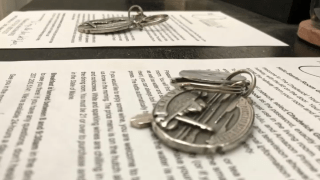
Maine innkeepers and hoteliers are opening their doors to out-of-state tourists on Friday for those who've either tested negative for the coronavirus or are willing to quarantine for 14 days.
But many say visitors are canceling over the measures.
Greg Dugal, spokesman for HospitalityMaine, said a survey of 51 testing locations between Maine and Virginia revealed only four locations where someone could get tested and get results within 72 hours or arriving in Maine.
"There's not enough availability for tests," Dugal said.
A panel that's tasked with assisting with the recovery of the state's tourism industry is recommending easing the testing and quarantine requirements. The requirements apply to all states except New Hampshire and Vermont.
Draft recommendations from the Hospitality, Tourism and Retail subcommittee of Gov. Janet Mills' Economic Recovery Committee suggests Maine's outlier status is going to hurt the state's tourism industry, the Portland Press Herald said.
"We feel compelled to make this recommendation because the economic consequences are so massive for these sectors and Mainers more generally," the draft report said.
The subcommittee's suggestions are not final and may be revised based on input from the full economic recovery panel.
Maine public health officials said Friday that 32 more people have tested positive for the virus. That brings the state's total to 3,102. The number of deaths remained flat at 103.
For most people, the new coronavirus causes mild or moderate symptoms, such as fever and cough that clear up in two to three weeks. For some, especially older adults and people with existing health problems, it can cause more severe illness, including pneumonia, or death.
Democratic state Rep. Rachel Talbot Ross said Friday members of the Maine Black community received an invitation from Mills to talk about racial disparity and coronavirus in the state. Black residents make up more than a fifth of Maine's positive coronavirus cases, though they make up less than 2% of the state population overall.
Talbot Ross and others held a news conference on Thursday to talk about the disparity and how the state can respond to it. She said the invitation is a sign that "there's progress."
Mills and Department of Health and Human Services Commissioner Jeanne Lambrew said Friday the state is working to address the disparity. Mills said she'd like to see a specific proposal about how CARES Act funds can be used to help.
Mills also announced that her administration has approved nearly $9 million in grants to almost 100 municipalities in the state as part of the Keep Maine Healthy Plan that supports coronavirus prevention and education efforts.
The grants are made possible by federal money. Mills said the grants can help with public education activities, public health support, local business assistance and other essentials.

